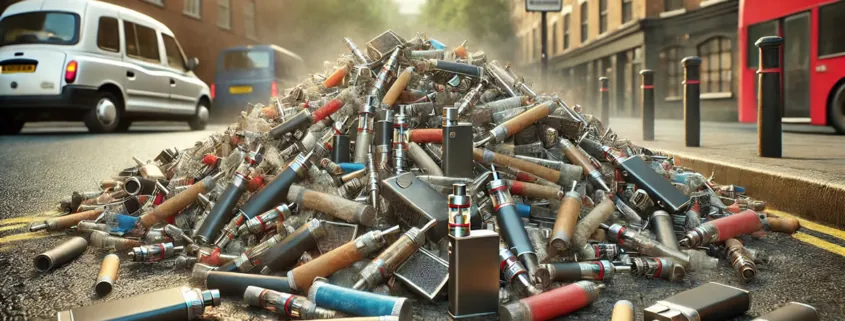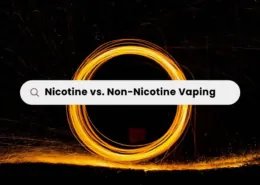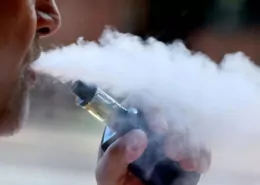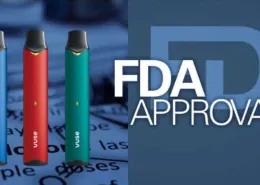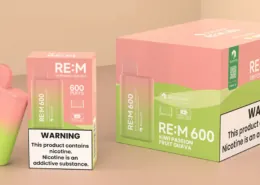90% of UK Vape Producers and Retailers Fail Environmental Regulations
A recent study conducted by Material Focus, a UK industry organization, has unveiled an alarming truth about the vape industry. The research reveals that over 90% of vape producers and retailers in the United Kingdom are failing to meet their environmental obligations, despite the impending ban on single-use vapes set to take effect in 2025.
The findings shed light on the ineffective system currently in place for managing vape waste. Material Focus estimates that a staggering quarter of a billion single-use vapes will be discarded in the lead-up to the ban, with producers and retailers showing little to no improvement in compliance since 2023.
Key Findings from the Material Focus Study
The study highlights several concerning statistics:
- Sales of disposable single-use vapes have skyrocketed to at least 360 million units per year.
- The lithium batteries in these vapes could provide enough material for over 6,700 electric vehicles in the UK.
- Recycling all disposable single-use vapes bought in the UK could cost up to £200 million annually.
- Only 33% of the 57 specialist vape retailers surveyed offered vape drop-off points for recycling, while high street brands and convenience stores provided minimal to no recycling options.
Industry Response and Call for Action
Scott Butler, Executive Director of Material Focus, expressed his shock at the lack of progress made by the vape industry since last year. He emphasized the environmental damage caused by disposable single-use vapes, including the loss of valuable raw materials, pollution of land and waterways, hazards to wildlife, and major fire risks due to the volatile lithium batteries inside them.
Butler called for immediate action to address the issue, urging vape producers and retailers to fulfill their statutory obligations to provide and pay for takeback and recycling services. He also highlighted the responsibility of well-known high street supermarkets, newsagents, petrol stations, and convenience store chains that profit from disposable vapes at a significant cost to the environment and public safety.
John Dunne, Director General of the UK Vaping Industry Association (UKVIA), responded to the findings, stating that all retailers and producers of vaping products need to take their environmental responsibility seriously. He expressed concern over the figures and called for increased efforts from not only retailers but also the government and regulators to ensure compliance.
Dunne suggested that the most effective step the government could take would be to introduce a licensing scheme for vape retailers, where a license to operate is predicated on having a take-back facility in place. The UKVIA also urged local authorities to play their part in recycling vapes, with an FOI investigation revealing that 80% of surveyed councils have no plans to introduce new vape recycling services in the next year.
The Way Forward
As the vape industry faces this environmental challenge, collaboration between the vape and waste sectors is crucial. The UKVIA is holding an event in April to foster better cooperation in addressing the issue of recycling vapes.
With the ban on single-use vapes looming, it is imperative that immediate action is taken to ensure the proper collection and recycling of the hundreds of millions of vapes expected to be discarded. The responsibility lies with vape producers, retailers, government bodies, and local authorities to work together in creating an effective and accessible system for managing vape waste and minimizing the environmental impact of this rapidly growing industry.
- Is It Illegal to Vape or Smoke While Driving in Minnesota? - August 15, 2025
- American Airlines Vaping Passenger Alleges Assault in Police Report - August 15, 2025
- NEXA PIX 35K Disposable Vape with Crystal Tank Review - August 15, 2025

